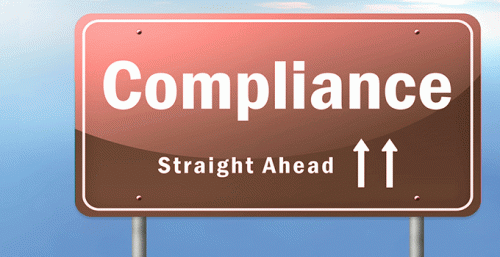Compliance
German Bank Fails Second US Stress Test; Other Lenders Fall Short

The US Federal Reserve released the results of its second stress test which looked at how the bank plans to build up capital in the event of a severe recession. A number of other prominent banks have fallen short.
Deutsche Bank’s US subsidiary failed the second part of the US
Federal Reserve’s annual stress tests because of “widespread and
critical deficiencies” in the bank’s capital planning controls. A
number of other banks - Goldman Sachs and
Morgan
Stanley - also fell short on specific tests of how well
they could withstand a shock such as a large fall in equity and
bond markets.
Last week, Deutsche Bank cleared
the Fed’s first hurdle that measures its capital levels against a
severe recession, the strictest ever run by the Fed. Thursday’s
second test focused on how the banks plan for that capital, such
as dividend payouts and investments, to stand up against a
severe recession.
The Fed also placed conditions on three banks that passed the
test. Goldman Sachs Group and Morgan Stanley cannot increase
their capital distributions and State Street must improve its
counterparty risk management and analysis, the Fed said. Goldman
Sachs’s and Morgan Stanley’s leverage ratios fell under the
minimum 3 per cent level as required in the Fed’s stress tests.
For other prominent US financial institutions, the ratios after
capital return in the severely stressed scenario were: Wells
Fargo (4.5 per cent); Bank of America (3.6 per cent); Citigroup
(3.4 per cent); JP Morgan (3.2 per cent); Goldman Sachs (2.7 per
cent), and Morgan Stanley (2.6 per cent).
“Concerns include material weaknesses in the firm’s data
capabilities and controls supporting its capital planning
process, as well as weaknesses in its approaches and assumptions
used to forecast revenues and losses under stress,” the Fed said
in a statement.
While failing the US stress test would not likely affect the
bank’s ability to pay dividends to shareholders, it will require
Deutsche Bank to invest in technology, operations, risk
management and personnel, as well as changes to its
governance.
It also means that the bank would not be able to make any
distributions to its German parent without the Fed’s approval and
could potentially result in the bank further stripping down its
US operations, as this publication reported.
Deutsche Bank said it had made significant investments to improve
its capital planning capabilities, as well as controls and
infrastructure at its US subsidiary. It would work with
regulators to “continue to build on these efforts".
This publication only recently reported
that The New York State Department of Financial Services (DFS)
had fined Deutsche Bank $205 million for unlawful, unsafe and
unsound conduct in its foreign exchange trading business.
Germany's largest bank has been through torrid times. As well as
boardroom changes, the bank has moved to slash costs, trimming
its equities business, while it stresses it sees wealth
management as an important growth area.